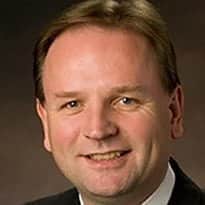Transform care with technology – Stevens
- 12 December 2013

The healthcare industry needs to take advantage of technology and innovation to transform the way care is delivered, says Simon Stevens, NHS England’s next chief executive.
Speaking at the World Innovation Summit for Health in Qatar earlier this week, Stevens, who will take over from Sir David Nicholson in April next year, said that innovations like mobile technology, genomic sequencing and big data are crucial to the future of healthcare and need to be embraced.
“It’s going to be capabilities developed outside the health sector, particularly those called general purpose technologies, that will unleash many of our transformative opportunities over the next decade or so,” he said.
“We’re likely to see as a result a number of changes in the type of care, the place of care, the care provider. Mobile sensors, cloud computing and data interoperability connect.”
He added that the ability to collect “big data” will transform the way healthcare is delivered from “one size fits all treatment plans” to individual patient therapies.
“We’ve sequenced the human genome, isn’t it time we sequence the human lifestyle,” he added.
Stevens, who is the president of the Global Health Division at United Health Group, was a government advisor when Labour launched the National Programme for IT in the NHS. His talk in Qatar shows that technology is still likely to be on the agenda for the NHS when he takes over as chief executive for NHS England on 1 April.
“Information is going to drive something big. We are going to draw back the veil between what those of us working inside healthcare know about it and what the people on the receiving end of our ministrations get to see – particularly about care quality,” said Stevens.
“We need to get serious about useful innovation; urgent about reshaping our care systems and open to a profoundly changed relationship with the people that we serve.
“Over the next decade, ground-breaking innovation will be possible, particularly if we open ourselves up to innovation from outside the health sector as well as inside it.”
Stevens argued that the healthcare systems in the world today need to change in order to respond to new ideas.
“I want to suggest that our current healthcare models mostly won’t cut it,” he said.
“In other words, what they need is the exact opposite of healthcare as the world’s largest cottage industry, which is what we have got in most countries.”




